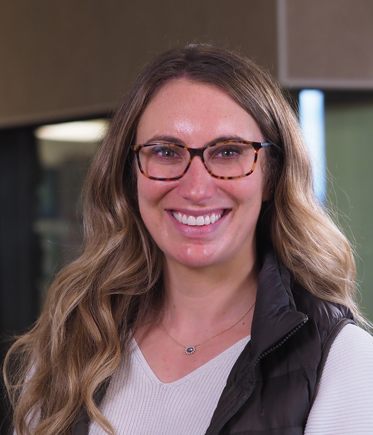Being proactive about your bone health can help you maintain mobility and independence. Memorial Regional Health
has an updated DEXA scanner and new expertise to help.
How Healthy Are Your Bones?
Take Steps Today to Prevent or Treat Osteoporosis
Take Steps Today to Prevent or Treat Osteoporosis
 Bones are made of living tissue, and like all the other living tissue in our bodies, they change as our health changes and as we age.
Bones are made of living tissue, and like all the other living tissue in our bodies, they change as our health changes and as we age.
Memorial Regional Health’s new board-certified Family Nurse Practitioner, Bridget Mucha, is an orthopedics and bone health specialist. She’ll be holding regular clinic hours at MRH to help patients assess, treat and monitor bone health issues such as osteoporosis.
“Many members of Craig’s community are physically active, whether it’s with their line of work or their activities,” Mucha said, “and we should absolutely be checking bone health regularly to ensure that fractures can be prevented before they happen. Fractures are debilitating and can lead to the loss of independence and mobility and ultimately decrease a patient’s quality of life. Confidence in your body is important, and I want my patients to have confidence in their bodies’ ability to continue to do the things they love.”
Bridget Mucha, Family Nurse Practitioner,
orthopedics and bone health specialist.
How Bone Health Is Revealed
If your bones have low mass, you may be diagnosed with osteopenia. People who are slender and active have osteopenia but also healthy and strong bones. In other words, osteopenia isn’t necessarily bad. But in less active and older people, osteopenia can be a precursor to osteoporosis, which literally means “porous bone.”
Osteoporosis is common but rarely has visible symptoms. Women are more at risk for a fracture than breast cancer, and men are more at risk for a fracture than prostate cancer.
Because osteoporosis isn’t something we can see or feel from the outside, it’s common for people to be unaware they have it until they break a bone after a minor fall or impact. And osteoporosis can become disabling because it can lead to hip and spine fractures, which cause pain and immobility.
The best way to assess bone health before a break is with a special type of X-ray called a DEXA scan. MRH recently purchased a new, more sophisticated DEXA scanner to make excellent bone imaging convenient for the Craig-area community.
DEXA stands for dual-energy X-ray absorptiometry. It’s a quick, painless x-ray that measures the density of your bones. The denser your bones, the stronger they are. The less dense your bones, the more likely they are to break or begin to crumble as you age.
The U.S. Preventive Services Task Force recommends that women over age 65 receive regular DEXA scans. In addition, younger women and older men with risk factors such as a family history of osteoporosis, a history of broken bones after age 50, smoking, physical inactivity, heavy alcohol use, early hysterectomy, diabetes, certain medication use (steroids, proton pump inhibitors, epilepsy drugs) and low body-mass indexes are also good candidates for DEXA scanning.
“An ounce of prevention is worth a pound of cure,” Mucha said. “DEXA scans are essential in making sure we can provide the best preventive care for our Craig community members.”
Treatment for Osteoporosis
If your DEXA scan reveals you have worsening osteopenia or osteoporosis, Mucha will help you develop a plan to improve your bone health or stop it from worsening further.
Regular exercise and a healthy diet are good places to start. The more you use your bones to move and bear weight, the stronger they become. And diets high in calcium and vitamin D give your bones the nutrients they need to build new bone.
Often prescription medications are recommended to treat osteoporosis as well. There are medications that help slow bone loss, and there are medications that help rebuild bone. Osteoporosis can be reversed over time.
“My treatment plans range from supplements and exercises to prescribed medications,” Mucha said. “I have routine follow-ups with patients who are on medications prescribed for osteoporosis treatment. I want my patients to be an active part of their care, and I make sure that I ‘meet them where they are at’ when choosing a treatment plan with them.”
To make an appointment with Mucha, please call 970.826.2400.






